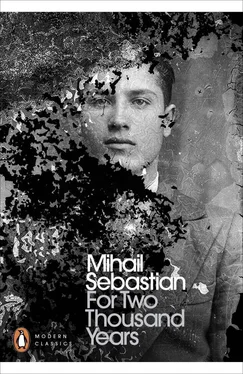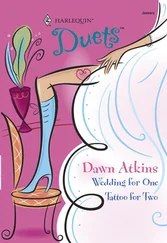1) Doctor Sibier.
2) Register of income.
1) Doctor Sibier is the medic he was substituting for.
He went on holiday to the south of France and then asked Paris for an intern to substitute for him.
As chance would have it, they sent Buret.
‘From the outset,’ recounts Maurice, ‘I knew he was no ordinary fellow. He had two paintings in his house, a Braque and a Marie Laurencin, which in Oizy isn’t just an act of courage, it’s a provocation. A Parisian, thirty-six years old, intelligent — what’s this man doing there, in that provincial backwater, in a town of 8,000 people, alone, without connections, without memories, without hopes? I asked the driver, I asked the nurse, I asked various patients who came along. Nobody could explain it to me. So I had to take up various means of private investigation and I opened the lower drawers of his bureau. He hadn’t left me the keys, but I managed well enough with a knife. I found a stack of letters of no great interest, a few ordinary photos and, finally, an intimate diary. Some 600 pages. I read it all over two nights. Well, it’s extraordinary. I tell you, ex-tra-ord-in-ar-y, and I mean it. You’re going to read it too, and you’ll see.’
‘How, did you bring the notebooks?’
‘Ah, no. What am I, a brigand? I just read them, and transcribed the essential passages. Anyway, I had nothing much to do in the evenings. I transcribed them, then put them back in the drawer. Two days before the return of the doctor, I called a locksmith from the town to repair the damage. Nothing suspicious at all, everything in order.
2) ‘Doctor Sibier returned to Oizy on the evening of the 10th, and I had to leave at dawn the following day. I handed over the register of takings in which the consultations and money received were recorded. I counted out eighteen notes of 1,000 and a few notes of a hundred. I counted out eighteen, though there were only seventeen. A thousand remained in my wallet. Don’t ask me why. It amused me to do it, apart from the fact that 1,000 francs is 1,000 francs.’
‘He could find you out.’
‘“Find me out”! Ugly expression. He could observe a small error in calculation, you mean. Possibly, but he hasn’t observed it.’
‘He might yet.’
‘Obviously. I expect a letter from him today or tomorrow.’
‘And what are you going to do?’
‘I don’t know. Depends on the letter.’
Indeed, Doctor Sibier’s letter arrived.
It seems to me you have made a small error in your calculations. I’m not certain and, believe me, I dislike bothering you for such a minor matter, but I can’t account for a thousand francs. Is it possible that we’ve missed something or, conversely, noted the same figure twice?
Maurice replied immediately. He doesn’t know if there was an error, but, if there was then he is responsible and ready therefore to immediately send on the missing sum. ‘Whether it is 1,000 or 10,000 francs, it would not be too much to retain a trust which is more valuable to me than anything.’
Eighteen hours later, he received a reply by telegram.
Don’t send anything. It was not a question of you for a moment. A thousand apologies.
‘Look, this is what’s called solid good manners,’ concluded Buret, waving the doctor’s telegram.
Though I am aware of the total moral vacuum in which he lives, I’ve once again sought explanations. Maurice isn’t just some debauchee, and nor is he impulsive. He proceeds with utter calm and takes complete responsibility for his actions. It’s awkward to talk of ‘conscience’, but I’m interested in how this fellow’s head works and his system of reflection and self-examination, that private space where we each one of us judges, absolves or condemns ourselves.
‘Oh, my conscience works excellently. Like a good lung, like a good stomach. My conscience can handle the most serious crises. It’s because I don’t fool myself and I don’t make a moral problem out of a practical one. Ever played football? I have. You’ll be familiar with the general principle at any rate: getting the ball in the back of your opponent’s net. The main thing is not to touch the ball with your hands. Perfect. If you want to play football, you have to submit to this rule. If you don’t accept the rule, don’t play. Simple. But it’s one thing to accept a rule and it’s another thing to believe in it. Whether or not you touch the ball is in itself unimportant and meaningless. It only acquires sense in the context of the game. But a moralist who takes up football won’t delay in pronouncing on the transcendental nature of handling the ball. Well, I don’t go in for that kind of thing. You see, the notion of “sin” is for me an abstraction. There’s no such thing as “sin”. There’s only such a thing as “tactlessness”.’
*
I’ve been in Buret’s home but twice, back when he lived with his mother, in their apartments in the Rue Vouillet. On both occasions, I felt I was inconveniencing him. He closed doors carefully after himself and led me hurriedly through the corridor, towards his room. At one point, through a half-open door, I caught sight of a lady and greeted her awkwardly, not knowing if I should introduce myself. ‘It’s nothing, a friend,’ he told her casually, in passing — and carried on by.
He talks of so many things with me but has never mentioned his family. This is a private area and out of bounds. Abundant conversations about women, books, friends. But nothing about what lies beyond, that is deep, constant and enduring in the spirit of his family, who have long been settled in Paris, yet remain Bretons. For all his apparent cordiality, his terrible discretion, his passion for conversations and ‘cases’, Buret is still a private, self-possessed and reserved individual. I’ve never caught him in a moment of depression or joy that has caused him to speak imprudently, or even freely and without reserve. What is called ‘the need to open oneself up’ is completely foreign to him. He doesn’t experience outpourings of emotion. At most he has considered sympathies. Somewhere, in his private life, a censor checks every word, suspects every impulse, cools every enthusiasm. A ring of steel protects his strictly personal secrets from attack.
Last week, out of the blue, he said to me: ‘I’ve moved. I live on my own now. I’ve decided, with Mama’s agreement, for us to live apart.’
I was taken aback. Less by the news itself than the fact that he was sharing it with me.
‘Why?’
(I had asked out of politeness, for the sake of a response, not believing he’d give me the reason. I’ve no particular talent for extracting confessions. But, to my surprise, he responded in some detail.)
‘I don’t know how it happened. For some time I’ve felt it’s no longer right. There’s a silent pressure that exerts itself, more upon my thoughts than upon my personal affairs. Anybody who says they’re free in their parents’ house is fooling themselves.
‘You know, I think I could live easily enough with Father. He’s a cold person and that doesn’t bother me. I don’t think I’ve ever spoken more than five words to him at a time. I’m indifferent to him. We don’t love each other. But with Mama it’s endlessly difficult. We love each other, and that’s intolerable. I’m good at dealing with adversity, but I can’t stand strong affections. Adversity forces me to define myself. Love, on the other hand, is indulgent, ready with sentimental transactions, ready with false amenability. Love in families, in particular, where the bonds are old, durable and invisible. I explained all this to Mother. I don’t know if she understood, but she accepted it anyway. We’ve concluded a treaty of mutual understanding: we’ll see each other twice a week.’
Читать дальше












